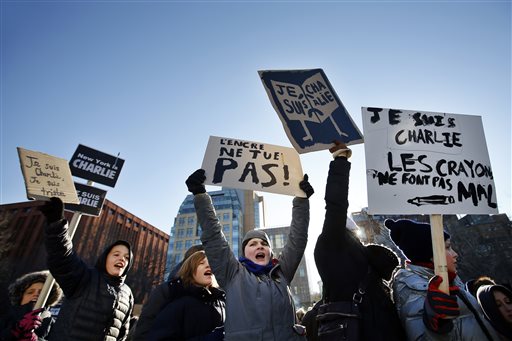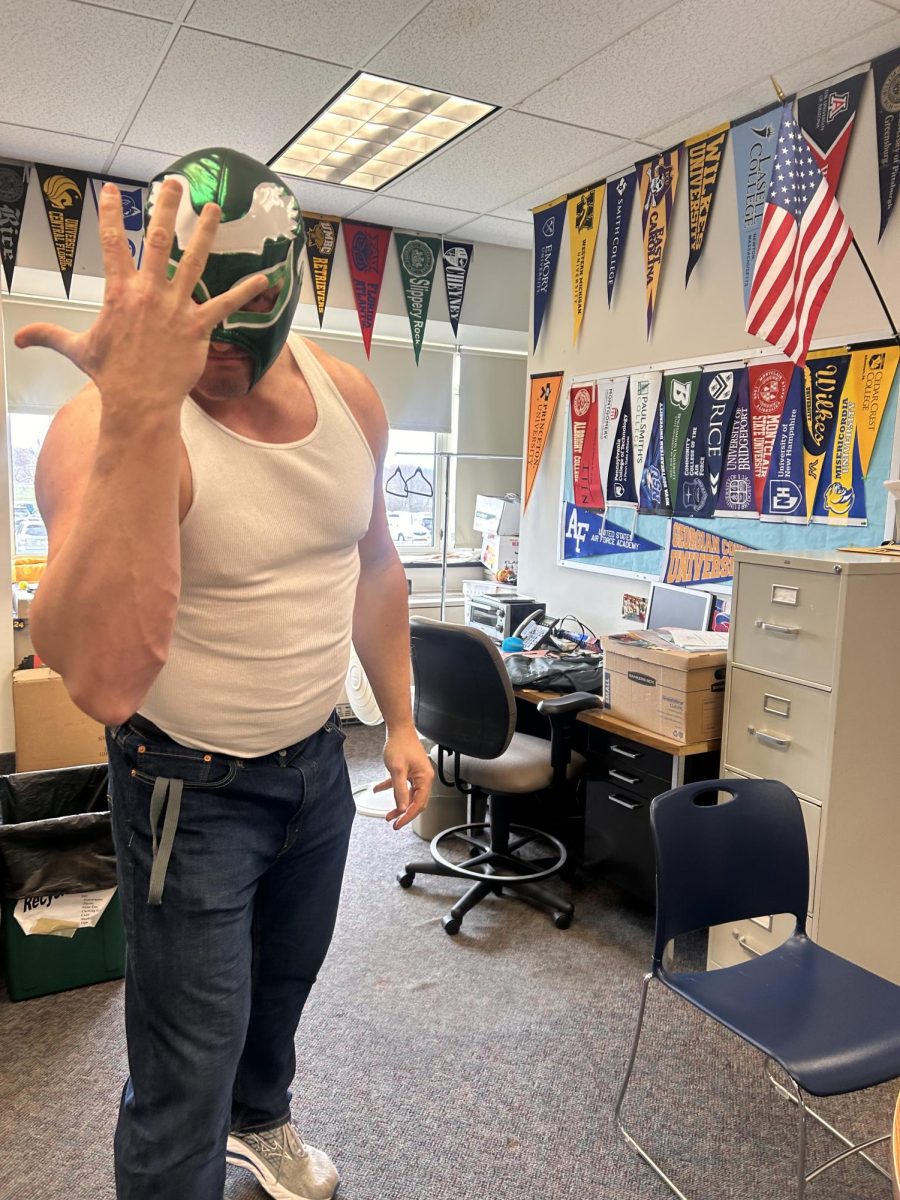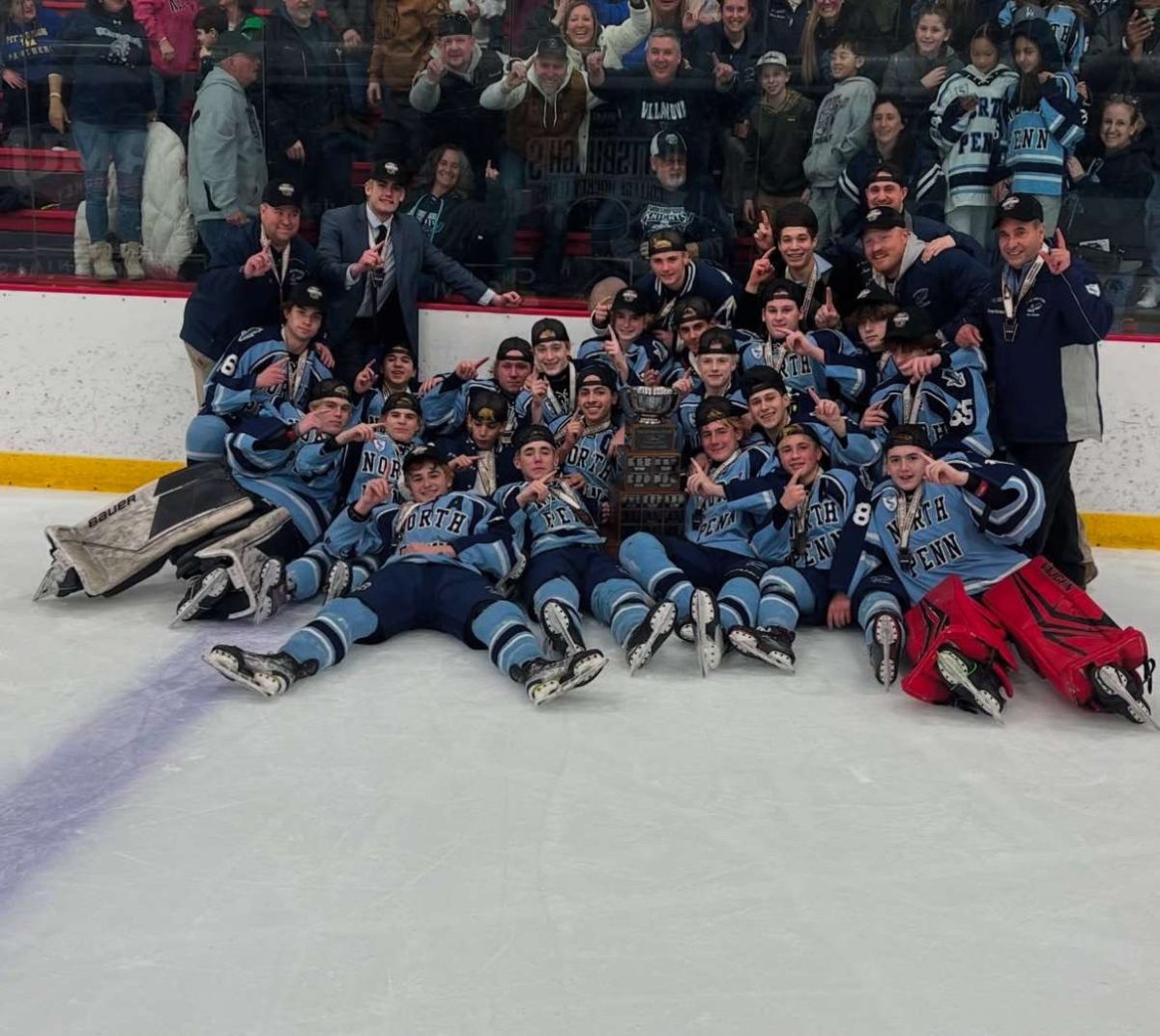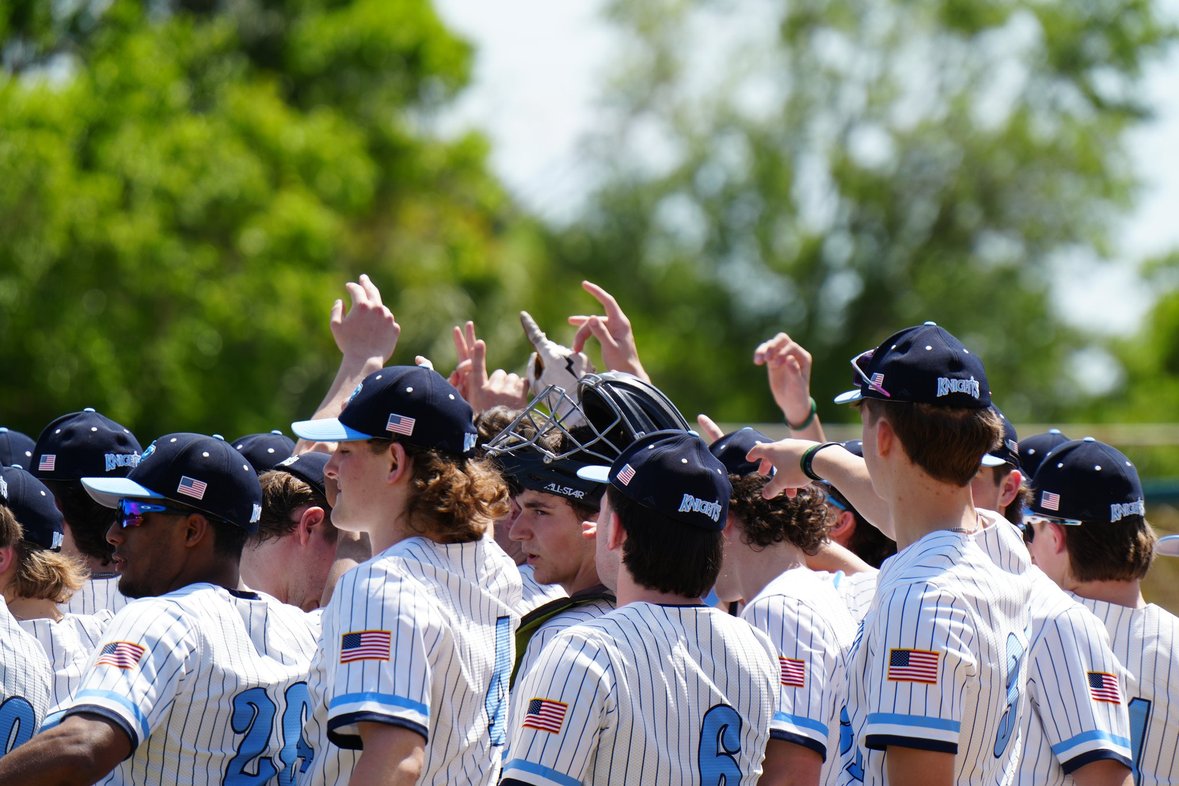Editorial: You’re probably not Charlie

Attendees holds signs and chant the slogan “Je Suis Charlie” (I am Charlie) as several hundred people gather in solidarity with victims of two terrorist attacks in Paris, one at the office of weekly newspaper Charlie Hebdo and another at a kosher market, in New York’s Washington Square Park, Saturday, Jan. 10, 2015. (AP Photo/Jason DeCrow)
January 14, 2015
“Je suis Charlie.”
It is the rallying cry that has been chanted by demonstrators in cities across the globe. It is the phrase that has been penned onto drawings by dozens, if not hundreds, of cartoonists. It is a message that free speech will not be stopped, even by the threat of violence and terror. It is a show of solidarity with the 12 people who worked for the French satirical magazine Charlie Hebdo until they were gunned down by radical Muslim militants last week.
It’s also the rallying cry for a message that the world does not appear to truly support.
While nobody would argue that the victims of this senseless attack on Charlie Hebdo should have been killed, few people would agree with the publication of the cartoons that prompted the violence. However, when viewed through the lens of a tragedy, thousands take to the streets in support of the magazine’s right to publish racist and insensitive drawings.
Free speech is an essential part of any democratic society, a right that people will die for and have died for over the course of human history. Supporters of the rallying cry “je suis Charlie” are taking a stand against the violence that threatens people who exercise their freedom of speech in unpopular and sometimes offensive ways. They are attending rallies in support of the slain journalists and calling for the publication of the insensitive cartoons in newspapers across the globe.
The people proclaiming that they are Charlie are the same people who expressed outrage when Sony cancelled the release of “The Interview” after the company received threats from a group of North Korean hackers. They are the same people who exercise and extol their First Amendment rights by posting often inane and uneducated opinions in the comment sections of blogs and online newspapers.
They are also the same people who express outrage and demand cancellations, retractions, and apologies from companies and individuals who produce content that they find to be offensive.
This Sunday, when Golden Globe hosts Tina Fey and Amy Poehler told jokes about the rape allegations surrounding comedy icon Bill Cosby, they were roundly criticized by people who claimed that the jokes were “insensitive” and “not funny.” Some of the same people who are taking to the streets to defend the right of Charlie Hebdo to publish cartoons that are hurtful and insensitive are taking offense at commentary that was told good-naturedly at an awards show. They are saying that the Cosby rape jokes are not okay, while proclaiming their support of people who publish things that are much more offensive.
And it’s not just jokes about serious issues like rape that cause cries of condemnation. The same night that Fey and Poehler told the Cosby jokes, TLC aired a special titled My Husband’s Not Gay. The special, about men who are married to women while being openly attracted to other men, was decried by the gay community for portraying being gay as a choice. In the days leading up to the airing of the special, a petition on change.org calling for the cancellation of the show garnered over 160,000 signatures. How can people claim “je suis Charlie” and advocate for free speech if they call for the cancellation of an objective show about real people because they find it too offensive?
The cartoons published by Charlie Hebdo, which blatantly disrespects Muslims as well as Christians, Jews, and many other religions, are much more offensive than any joke or reality TV special. Despite this, Charlie Hebdo has as much of a right to publish the cartoons as any newspaper has to publish anything. This is the price to be paid for free speech; in exchange for your ability to express your opinion, no matter how unpopular it might be, other people may also express their opinion, no matter how offensive it might be.
Some argue that freedom of speech does not mean freedom from consequence. Sure, you can say whatever you like, but you might pay the price for it. But can you really say what you want if you’re being punished for it? The only way that free speech can be repressed is through consequence. Taking this into consideration, freedom of speech is, by its very nature, freedom from consequence.
While it’s easy for people to profess support for a publication that was recently struck by tragedy, it’s unlikely that Charlie Hebdo would receive such a strong backing had they not paid such a terrible price for extending their free speech right to the limit. While people proudly say that they are Charlie, the reality is that they are not. To be Charlie would be to publicly express your opinions, despite the fact that they are offensive to a large group of people. To be Charlie would mean that you respect other’s rights to express their opinions and don’t join the public outcry that arises every time people say things that other don’t agree with. To be Charlie would be to offend many ethnic and religious groups, despite the consequences that you face for doing so.
Chances are you are not Charlie. Most people aren’t. And that fact might just be what puts a little tolerance and peace into the world.









